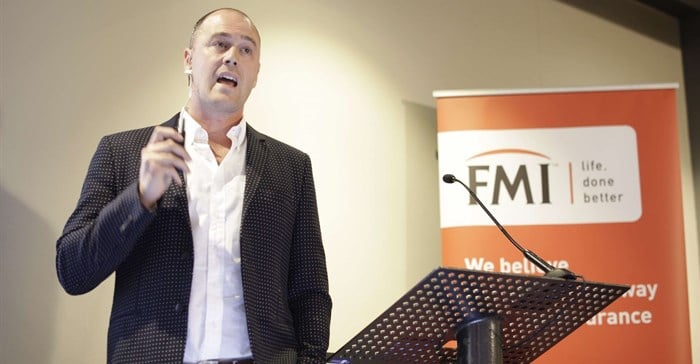Dispelling retirement myths

“On the one hand, risk planning is about your ability to earn an income and protecting it against horrible things happening to you, so you can accumulate some wealth. While, investment planning is building up those assets and protecting your wealth so that one day you can replace the income you were earning when you decide to retire,” says Brad Torien, CEO of FMI.
“Decisions you make in the risk planning world can have significant consequences in your investment planning for your retirement reality. The problem is that we think both of them are driven by conventional wisdom.”
So, what’s wrong with conventional wisdom?
The problem with conventional wisdom is that some of it is simply no longer true today.
“We cling to these things so dearly, and they become so part of our identity and how we see the world, that often even when they are demonstrably proven false we still hang onto them. My concern is that today we are making decisions based on things that were true yesterday, but may no longer be valid,” says Torien.
He cited some examples including Albert Einstein’s statement in 1932, that: “That there’s not the slightest indication that nuclear energy will ever be attainable.”
“So, if the smartest guy in the world could be proven wrong. How can we believe that anything we know today is 100% true? The truth is the world is changing. And it’s changing rapidly,” he says.
So what are some of the myths or conventions that are driving today’s wealth planning.
Myth #1: You will earn a continuous, steadily increasing stream of income until you retire
“Seven out of 10 people have at least one injury or illness during their career that will affect their income. These temporary interruptions have long-term consequences. For 50% of them it’s going to happen more than once.
Income protection is a great start but its not enough, decisions like choosing the shortest waiting period possible are absolutely crucial. Second part of this myth is that your income is steadily going to go up, for most people you are just as likely to have a year when your income dips, especially in an economy like the one we’ve just come out of,” Torien says.
“To protect yourself from this myth – you need to protect 100% of your income. Anything less than that is simply not enough. South Africans are bad savers – so if we are battling with living on our income, why would we assume that living on anything less when we are temporarily incapacitated is enough?”
He says some of the things to consider when looking at income protection products are:
- Select the shortest possible waiting period
- Have the certainty that claims will be paid when needed
- Make sure you have future insurability
Myth #2: You know how much you need to retire
This myth is driven by two rules of thumb:
- 75% of replacement ratio: Is this sufficient? What if you still have debt? What if you have healthcare costs? What if you still have dependents?
- 20 times this amount is a sufficient amount to invest at retirement. Look at the growth of four major asset classes, and ask yourself when would your income run out? Only in the most aggressive assumption would your income last until you’re 90.
“So, what are your options?” Torien asks. “Save more, work longer or live on less. We believe the answer is a combination of the first two.”
Myth #3: Retire at 65 and live till 90
Torien gives some back story on this myth, explaining that retirement was introduced by Otto von Bismarck in 1880s. Originally retirement was set at 70, because people were expected to live to 70, and the idea was to take a few months off before you die. This has changed.
Further down the line, the standard age in the States was set at 65 in 1930s, based on study of mental decline starts in your 60s.
“This is simply no longer true today, but this thinking is still what is driving decisions,” says Torien.
Besides losing a lot of wisdom and experience by forcing people to retire at 65, there are other factors to consider. “Work gives people a sense of purpose. You are 30% more likely to die in your first year of retirement, then in your last year of working. People can’t or don’t want to retire,” he says.




























